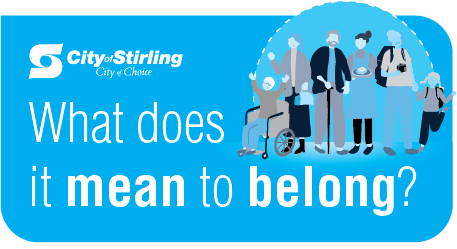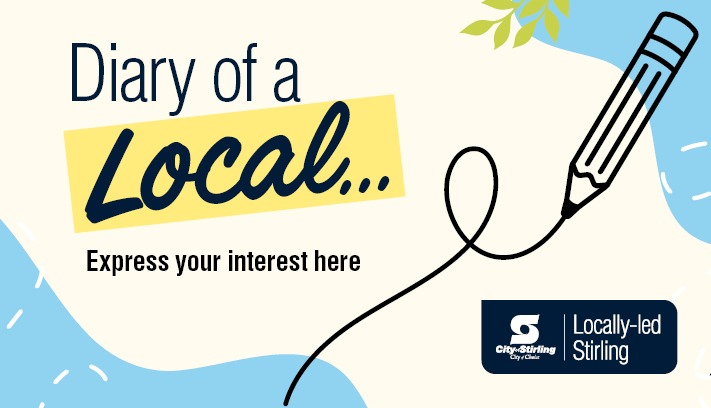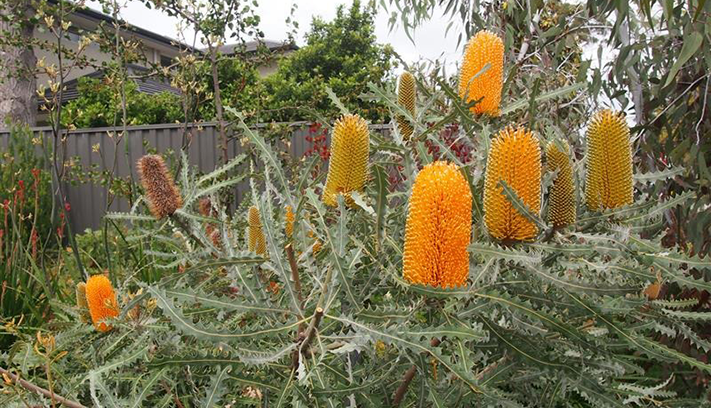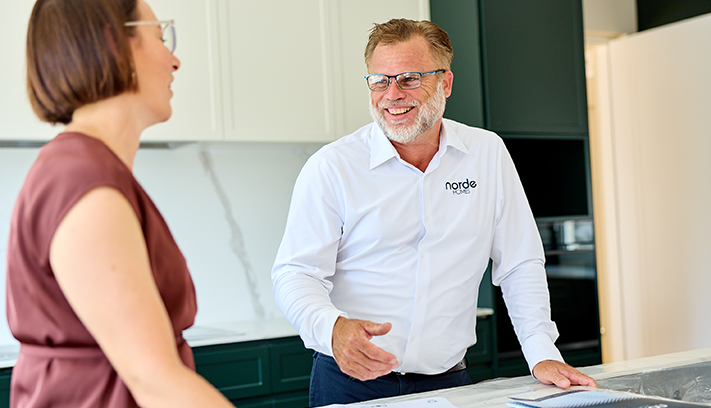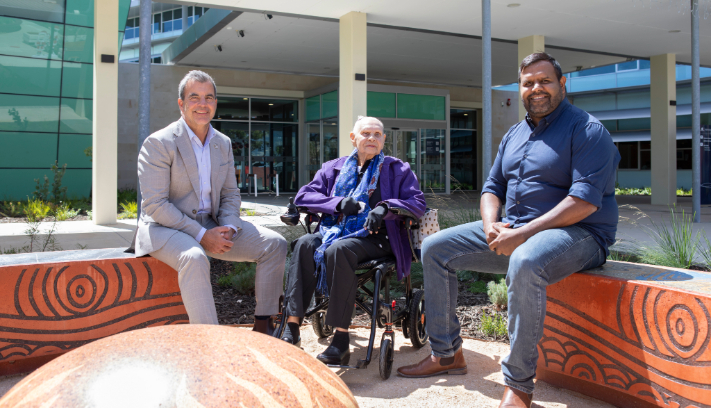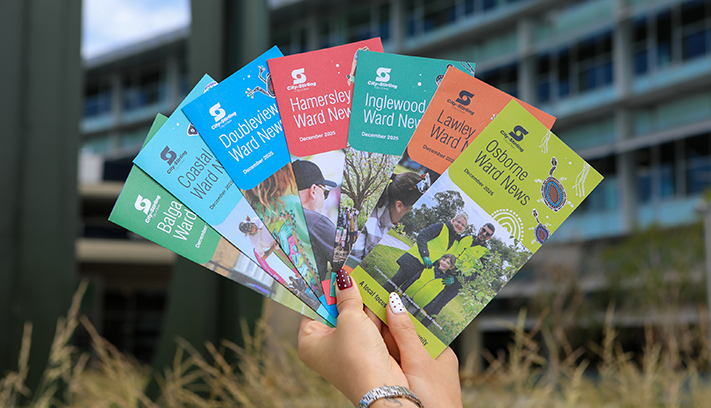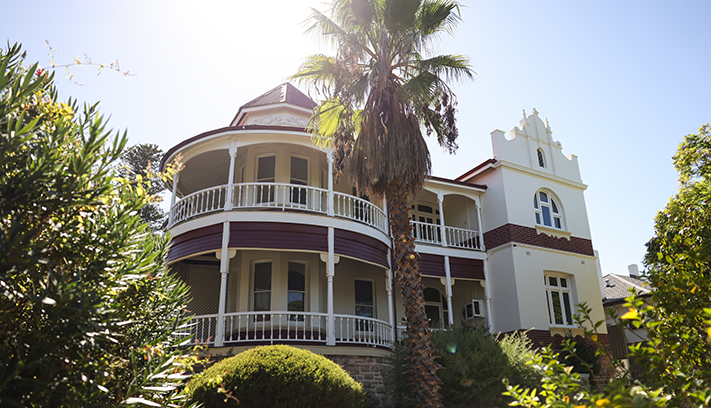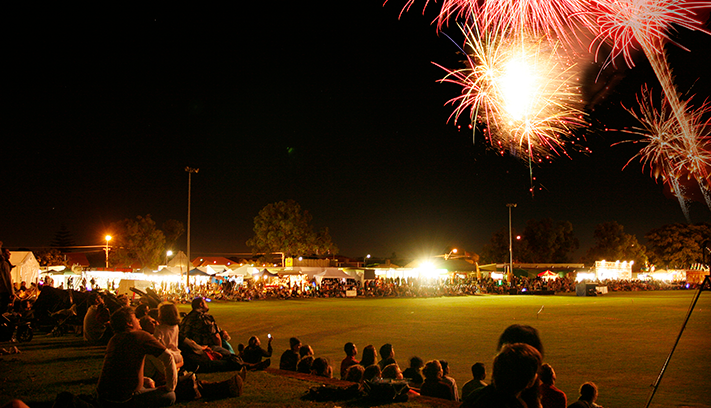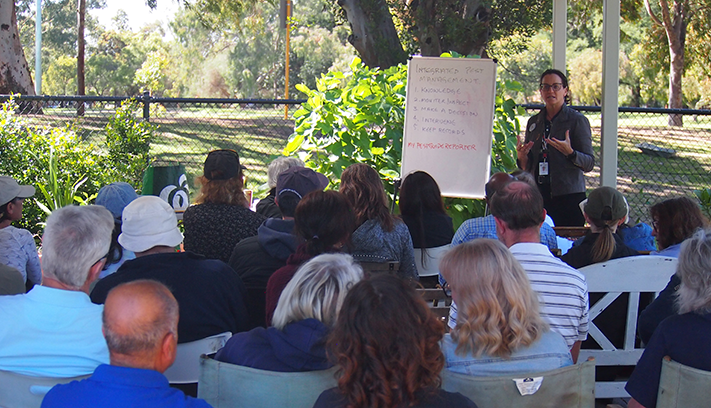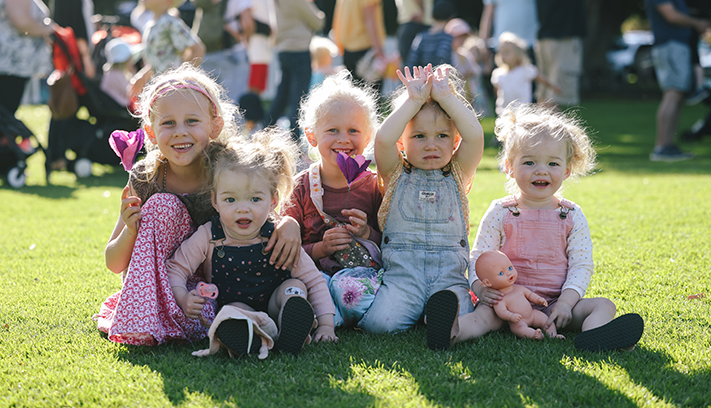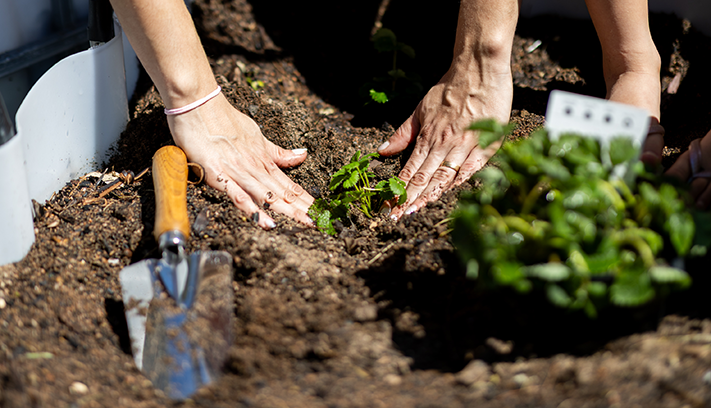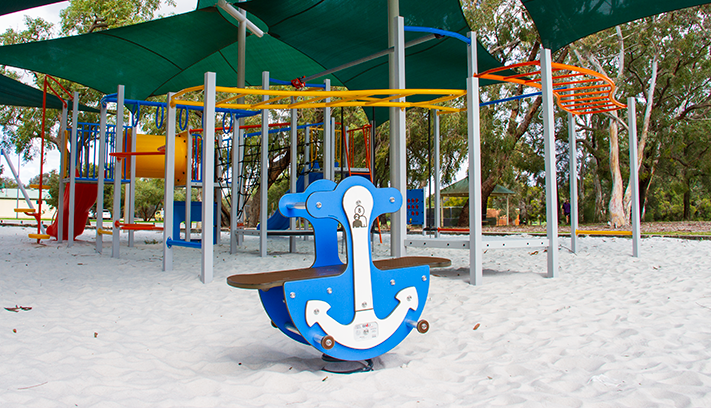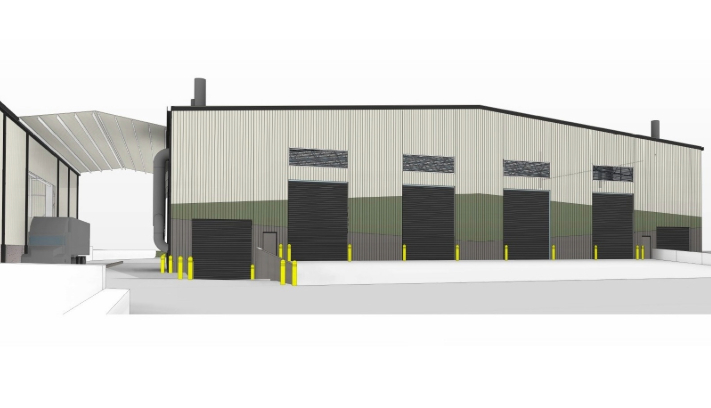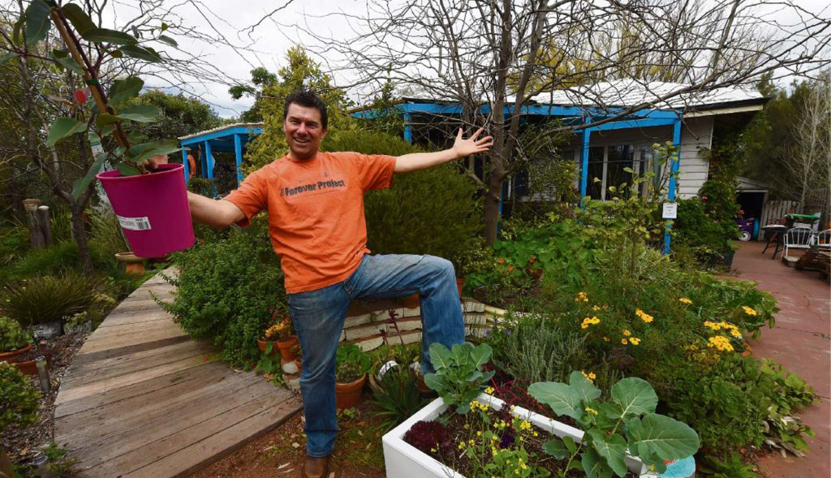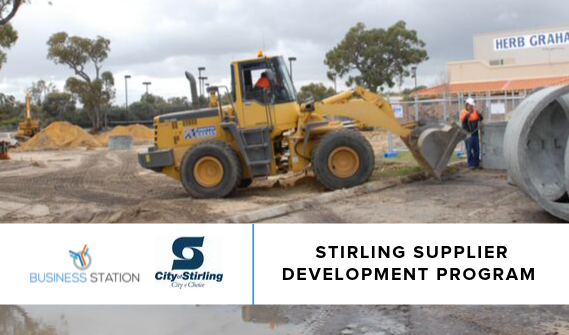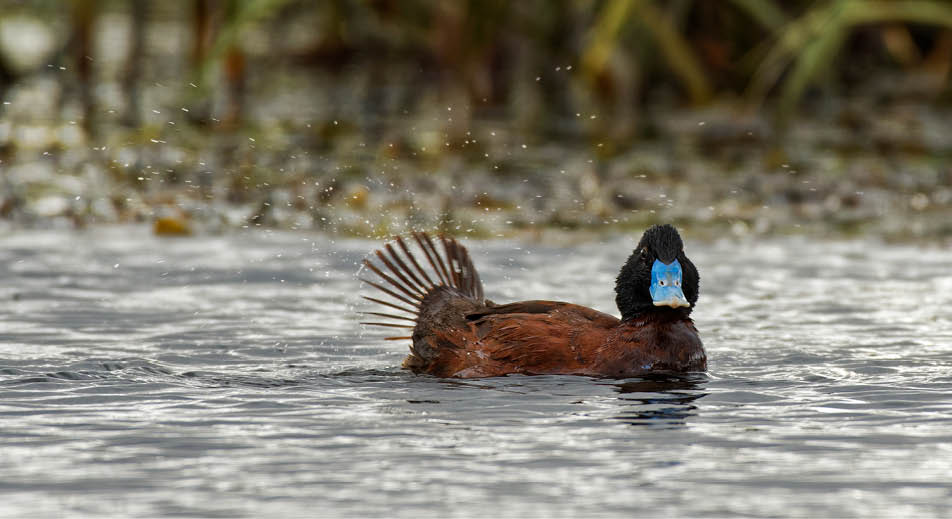

The local community describes Balcatta as a multicultural, active and friendly neighbourhood. To better understand what is means to be ‘a local’ our suburb profile seeks to understand the local stories Koora (past), Yeyi (present), Boordawan (future) and respond to Ngalang Maya (our place). This snapshot identifies the unique character of Balcatta’s neighbourhood and helps the City rethink how we deliver services with a local focus.
Balcatta, meaning ‘his hill’, was predominantly used for market gardening until the '60s and '70s, when industries moved into the area and blue-collar workers began to establish homes.
What it means to be a 'local'
First recorded by Alexander Forrest in 1877, Balcatta is the Aboriginal name for the northern portion of Careniup Swamp, derived from the words "bal" (meaning "his") and "katta" (meaning "hill").
In 1844, a grant of 780 acres was granted to Samuel Moore in an area now covered by Balcatta. After his death in 1875, the land was sold to John Charles Mews for £300 and the first trace of the name Balcatta can be found on the offer for sale by Mews in 1888. Another section of Balcatta was also once part of an extensive grant given to T. R. C. Walters in 1840.
Significant Balcatta landmarks include the limestone pinnacles on the grounds of Balcatta Senior High School, which were unearthed in the 1930s and 1940s as surrounding sand was excavated. The Balcatta industrial area occupies the northern portion of Balcatta and the site is a significant employment centre for the region, offering a range of services including retail, office, wholesale and light industry.
Local community groups
Local markets
Local sporting clubs
- Balcatta Football Club
- Balcatta Cricket Club (and Juniors)
- Balcatta Baseball Club
- Balcatta Volleyball Club
- Stirling Amateur Football Club
- Stirling Junior Football Club
- Gwelup Croatia Soccer Club
- Black Stars Football Club
- WA Blind Cricket Club
- Stirling Macedonia Soccer Club.
Local leisure
Local schools
Local focus
These are the top local priorities you've told us are important for Balcatta.
What you've told us so far
"Community safety, more patrols."
What we're doing
The City currently operates 19 Ranger Service vehicles between 7.00am and 7.00pm, Monday to Sunday, with four Community Patrol vehicles operating 24/7, 365 days a year. Patrol locations and equipment deployment are guided by data, rather than a blanket approach, to ensure resources are focused on areas of greatest need. This includes the ability to increase the number of Community Patrol vehicles to up to seven during priority times.
To make a report, call the City's Community Patrol on 1300 365 356 (24/7 services) or report online.
Learn more about community safety initiatives in the City of Stirling.
What you've told us so far
"More sustainable housing infill. Maintaining trees and considering individual and community impacts when development approvals are given."
What we're doing
The City continues to take a proactive approach to development applications (DAs), with a focus on retaining as many trees as possible. As part of the 2025-26 Budget, a Tree Project Officer will be appointed to ensure DA requirements are met and that trees are retained and planted where required.
Learn more about the City's Living Green Program.
Find out more about trees and development in the City of Stirling.
What you've told us so far
"The Council's efforts to increase tree canopy cover are great and should continue to be a focus."
What we're doing
1,000 trees will be planted in the Ward across the 2025 and 2026 planting seasons.
Learn more about the City's Living Green Program.
Find out more about trees and development in the City of Stirling.
What you've told us so far
"More recycling options."
"More than one bulk rubbish collection yearly."
What we're doing
The latest budget ensures the community's waste needs are met. Along with the three bin Garden Organics (GO) service, ratepayers are allocated the following waste services each financial year:
Tip passes
For drop-off at the Recycling Centre Balcatta:
- Household mixed waste - up to one tonne. Four visits permitted with a maximum of 250kg per visit
- Clean green waste - up to one tonne. Four visits permitted with a maximum of 250kg per visit
- Residential construction waste one tonne. Four visits permitted with a maximum of 250kg per visit
- White goods disposal - up to two items
- Mattress disposal - up to two items.
On top of these tip passes, households can book each of the following free on-demand waste services once per financial year, at a time that suits their needs:
- One skip bin (three cubic metres)
- One mattress collection (up to six items)
- White goods collection (up to four items)
- E-waste collection (up to six items).
Two additional skips bins can be booked through the City at a discounted rate of $87.55 per skip.
Residents also have free access to drop-off household hazardous waste items and access free alternative recycling collections at the Recycling Centre Balcatta, open seven days. Find out more on the recycling and hazardous waste webpage.
Learn more about waste and recycling in the City.
Facts
Balcatta population
Average number of people per household
The average age in Balcatta is 39 years old!
Top five birthplaces
Median weekly household income
86% of residents are satisfied with liveability
Local plans
Dwellings in Balcatta are mainly single detached residences, although a number of unit developments exist within the eastern sector between Main Street and Wanneroo Road. Houses are generally made of brick and tile with many reflecting a southern European influence in their design. Character housing can be found in the area east of Main Street - these are generally older, timber-framed dwellings that housed the majority of market gardeners before Balcatta’s suburban development.
Balcatta has a total of 52ha of public open space which includes 32 local open spaces and six district open spaces that offer a range of facilities, including:
- Richard Guelfi Reserve and Jones Paskin Reserve, which both have playing fields
- Grindleford Reserve and Macedonia Park, both home to soccer
- Rickman Delawney Reserve with its own tennis courts.
Balcatta contains two shopping centres:
- Primewest Northlands Shopping Centre on Wanneroo Road, serving district shopping needs
- Amelia Heights Shopping Centre, catering for local requirements.
Four primary schools are located in the area and Balcatta Senior High School provides secondary education for local students.
The industrial area to the north of Balcatta is home to numerous businesses, including the offices of the Water Corporation and Western Power.
Projects and engagements




